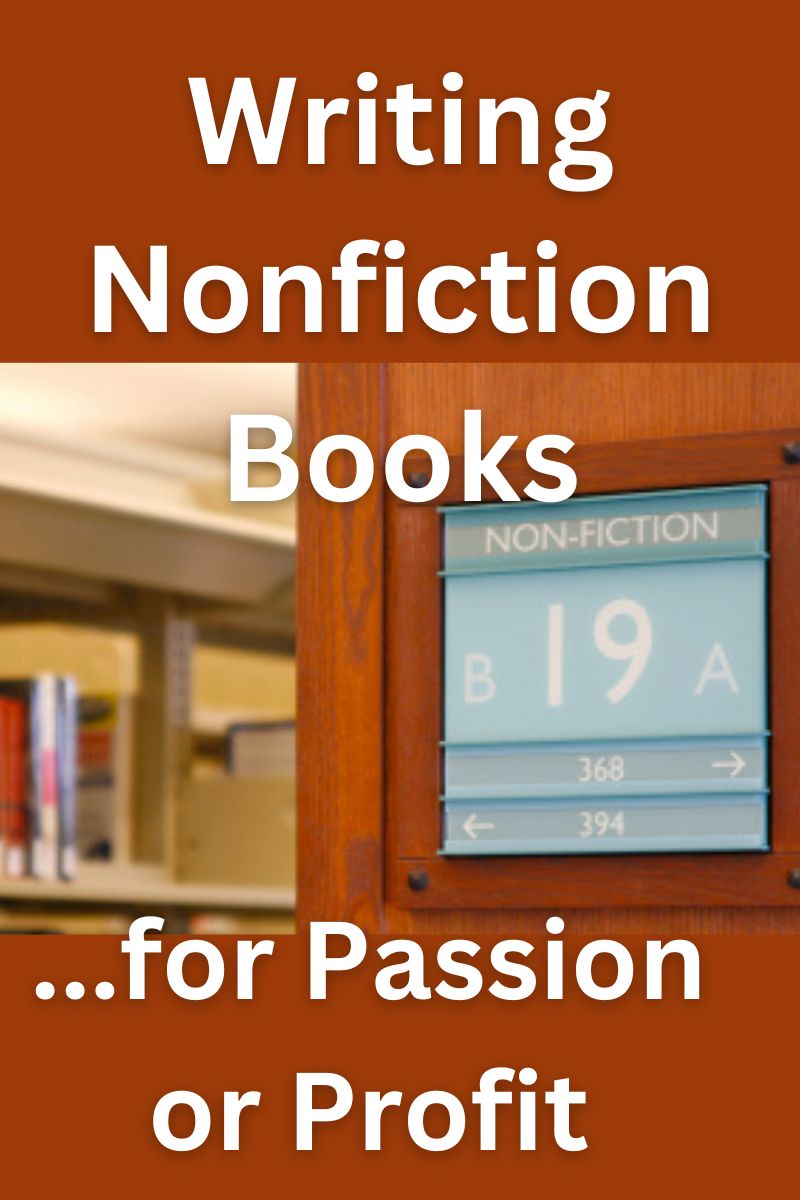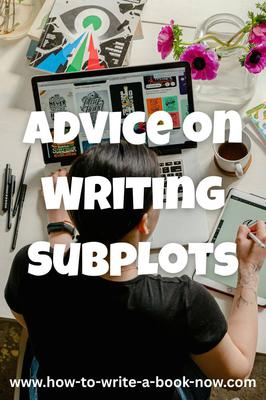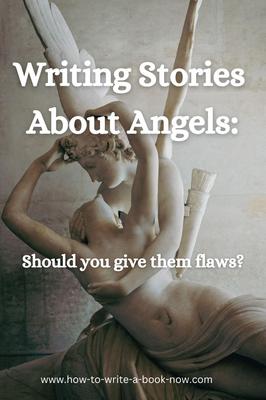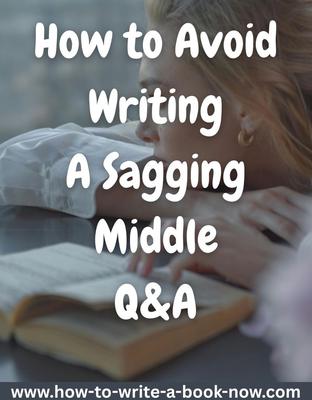Writing Nonfiction Books
By Glen C. Strathy
People interested in writing nonfiction books seem to fall into two categories. On the one hand, there are people who have a passion or an interest in a particular subject who want to write a nonfiction book as a way of expressing or sharing their passion. On the other hand, there are those who want to make a living – or possibly a fortune – as a writer, and writing nonfiction sounds more promising to them than writing poetry, novels, or plays. Having no attachment to any particular subject, they will simply try to write nonfiction books based on the ideas or topics with the most profit potential.
Whichever category you fall into, the surprising secret to writing nonfiction books worthy of being published is not choosing the most profitable topic or following your passion. Rather, the key is connecting with a particular audience by offering them what they are looking for.
You don't necessarily need a huge audience to make a living writing nonfiction. Many writers are very successful at writing books for a niche readership.
Of course, you can choose too small a niche. For instance, one often runs across people interested in writing nonfiction biographies about their ancestors. It's a laudable goal, but unless your ancestor is already famous or truly extraordinary, you may find that the public at large has little interest in reading about him or her. In that case, your niche audience may be limited to a few members of your family.
If you are not aiming to make a lot of money, writing a biography of your late grandfather, for instance, might give you great personal satisfaction. If that's your aim, you can simply self-publish a few copies for your relatives. Fortunately, that does not cost a lot of money these days. There are plenty of online, self-publishers who can produce small numbers of books for a reasonable price.
On the other hand, if you are a hoping to make a living writing, there are an almost limitless number of niches large enough to make writing nonfiction books targeted to them profitable. For instance, suppose you have an idea for writing a nonfiction book. By doing a little research, you can estimate whether a potential audience for your book exists.
Start by asking yourself how many other people you know who might be interested in such a book. If the subject matter relates to a hobby of yours, you should know a few other enthusiasts already. Find out if there are clubs and organizations dedicated to this hobby. If so, do they exist nationwide? How many members do they have? Are there magazines and newsletters dedicated to your topic? If so, what is their circulation? Dan Poynter recommends you look for a potential audience of at least 200,000 to make your book writing efforts worthwhile.
You can also benefit from searching for other books on your topic in library catalogs, in major bookstores, or on amazon.com. If there are hundreds of recent titles, the market may be saturated. On the other hand, if there are hardly any other books, that could mean there's no interest in that topic. Doing such a search will also tell you if your idea will make an original contribution to the field (something publishers expect).
The good news is that you can find audiences for a very wide range of specialized subjects. In fact, you may be surprised how many people are interested in seemingly archane or narrow topics – perhaps not in your home town, but certainly nationwide. For example, when I was much younger, fans of the first Star Trek television series were looked down upon as oddballs. They were an extremely small minority in my high school. So were people who liked comic books, punk music, computers, or virtually any other niche subject. Yet, the number of enthusiasts for each of these topics nationwide was huge. More importantly, since those days quite a few writers have made a lot of money writing nonfiction books on these subjects, and today they occupy a lot of shelf space in most major bookstores.
The 4 Biggest Topics When Writing Nonfiction Books
If you are determined to set about writing nonfiction books that will become best sellers, you may need to focus on topics that address universal themes.
For instance, if you browse through the bestselling nonfiction books in your local bookstore, you will notice that most of them relate to a handful of major topics: business, personal finance, health (including weight loss), practical psychology/personal improvement, and relationships. This is because the three biggest desires most people have are
- wealth
- health
- happiness
Occasionally, “hot topics” can dominate the bestselling list, such as (in recent years) politics and the environment. But health, wealth, and happiness are perennial winners. You may face a lot of competition on these topics, so your contribution needs to be original and significant. But the rewards for writing nonfiction bestsellers can be significant.
The other hugely profitable category for writing nonfiction books is “how to.” People want solutions to their problems. They want to achieve their dreams. So if you can show them how to get rich, how to get healthier, how to find love, or how to solve any common problem from dry rot to the meaning of life – and how to do it easily and quickly – you can sell a lot of books.
Once you have a general topic in mind, your next step is to figure out the specific way you can help your readers. Whatever subject you're writing nonfiction books about, you need to find out what problem your readers most want help with, what information they are desperately searching for, or what benefit they want above all. You may be able to discover what your potential readers want by talking to some of them. Participate in their organizations. Go to their conventions. Read the “letters to the editor” section of their newsletters. Join their chat groups. Once you know what they want, try to write a book that will satisfy them.
For instance, if personal finance is your topic, can you show people specific ways to make money, protect money, manage money, understand money, or save money? Can you help them make money faster or generate bigger investment returns? Can you show them little-known yet powerful avenues to wealth? Can you help them, start a business, get a better career, retire early, get a raise, save money on insurance, or get a free vacation?
In other words, to really make a career writing nonfiction books, you need to provide tangible benefits to your reader.
There are two other points you should keep in mind if you are considering writing nonfiction books.
First is the issue of credibility. For many topics, readers and publishers want to know that the author of a nonfiction book is an authority on the subject. For this reason, it is probably best if you start by writing nonfiction books on topics you have qualifications or unique experience in. Health books are more credible when they are written by health experts. Books on making money in the stock market are more credible when they are written by financial experts or by those who have made a fortune themselves. Travel books – it goes without saying – are respected when written by people who have actually explored firsthand the places they describe. Of course, you can make up for your lack of expertise somewhat by interviewing experts, and doing your own research, but for many topics secondhand experience is second rate.
On the other hand, you can take steps to qualify yourself. You could
join relevant organizations, or write a few magazine articles on your
chosen topic in order to help establish yourself as an authority. Maybe you could create your own blog or website on the subject. This would also help build an audience (or platform) before your book is published.
One final tip: bestselling nonfiction books are generally focused on one BIG idea – a core concept that can be summarized in a few words (such as the title), strikes the reader as original, is easy to understand and remember, and will eventually make a great soundbite in publicity campaigns. It may sound a little pessimistic, but most readers want easy answers and step-by-step solutions. Large, in-depth tomes are read only by extremely dedicated enthusiasts or professionals. If you want to target a large audience, keep your message simple and practical.
If you are serious about writing nonfiction books, your first step is to write a proposal. Click here to find out how.
Or, to find out how to make money writing nonfiction articles check out this unique opportunity.
- Home
- Write Nonfiction
- Writing Nonfiction Books


















